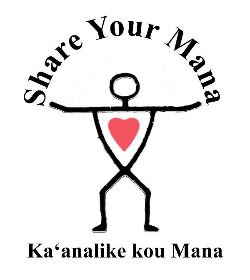
A girl can’t escape danger from an abusing partner because her paperwork is incomplete. A double amputee man struggles to make the long trip to the bathrooms because the gates are locked. A pregnant woman walks almost a mile to the only water access in the precarious night. Children are riddled in unhealthy conditions due to delays created by unrealistic intake requirements. As COVID pressure surmounts, stressed homeless people spit in other’s faces about irrelevant matters. County departments drag their feet as people argue over donated peanut butter and jelly sandwiches. And as if to twist the knife, the Maui Police Department needs to be constantly begged to not harass those living unsheltered. This is a glimpse of what desperation looks like.
The population of houseless, homeless, unsheltered and those living in their cars is predominantly blood Hawaiians. The last seven months have spotlighted areas of Maui County that were screaming for attention for a very long time. The COVID footprints of incapable leaders has recently triggered a spur in hostility due to the desperation. First hand accounts of trying to dismantle the hopelessness has Maui care-giving workers and crisis staff looking for new approaches.
There is a short list of Maui agency entities that are tasked to provide services through government funding during a pandemic. They have not made the full reach to the desperate population in need. One might suggest that the agencies failed and another might say that the area of need is underfunded. Truthfully one agency declined to accept funds explaining that they did not have the capacity to manage more money. Another agency made decisions based on wrong data.

Data driven solutions can work but not if the data collected is incorrect. Last year’s Point-In-Time data revealed that Maui County had a decline in houseless, homeless, unsheltered and living in their cars. Even if this was the case, which it is not, the mere idea that the number has dropped is absurd when you look around at Maui’s corners, streets, beaches and jungles. As the desperation grows, the frustration burdens this population with exhaustion and impatience.
These disenfranchised and vulnerable residents have learned a lot of what they can not count on from their County. They have also learned some human rights and lineal descendent rights. People have been forced to make serious choices during this emergency crisis. Some have occupied foreclosed homes, dormant business fronts and empty camps. Others have been considering to aggroup to demonstrate their right to reside on lands otherwise classified as inherited Hawai‘i Land Commission Awards. The chaos and failure rate is high in these placements if sustenance support is not planned and in place.
It is paramount that we do not beholden our outreach workers to the fixated Coordinated Entry System requirements for support services, they are too stringent. A recently proposed Maui County Bill that unlawfully demanded wrap around services was introduced by Maui County Council Affordable Housing Chair Tasha Kama. Due to a “firestorm of community input” it was unanimously voted to be filed. The unconscionable measure has been repackaged and is looking for new light of attention. This bill poorly opens the position of the Council to a slew of lawsuits. Further more, the mere reintroduction of it reshapes the Council to an even numbered body because the move would warrant the removal of the Kahului Council seat holder.
From day one of the COVID alarm the organization Share Your Mana informed Kahului District Council member Tasha Kama’s office on the critical needs of the unsheltered. As other departments and agencies went shuttering, providing basic needs remained ignored. Many of those predominantly blood Hawaiian houseless, homeless, unsheltered and those living in their cars will continue to struggle to survive. Action steps must be taken to to help this population that has been ignored, harassed and hardened by unfortunate chaos created by negligence.

Immediate solutions must be implemented such as supply of porta pottys, water systems, and increased outreach so that these COVID created communities need not live further in jeopardy. As County departments plan CARES spending it seems obvious that funding organizations who have followed CDC Guidelines and employ evidence-based practices would help implement solutions. These impoverished residents need attention that has been absent since the COVID alarm began in May. If the tension continues to grow, it will forever be embossed on the resume of work by Mayor Mike Victorino and Kahului Council member Tasha Kama.
The failure to provide services to those in poverty is beginning to appear intentional by design. Should these struggling Maui residents decide to take risks out of desperation, it ought not be judged as reckless on their part but rather, the failure of their government leaders. We don’t need a Nelson Mandala or Mother Theresa to help these Maui residents in need, we only need a Mayor and a Council woman who does their job.
~ ~ ~ ~
Jan. 22, 2021 EDITOR’S UPDATE: It is hopeful that newly elected Councilmember Gabe Johnson and Affordable Housing Committee Chair will take the bull by the horns and turn this horrid situation around.
Editor’s Note: An approaching virtual homeless talk-story meeting date is planned on the heels of the Thanksgiving holiday. The actions that must be taken to serve this population need not wait for this virtual meeting. Most of those affected can’t attend this virtual meeting due to the lack of technological access.
~ ~ ~ ~
Subject Related Resources:





You must be logged in to post a comment.